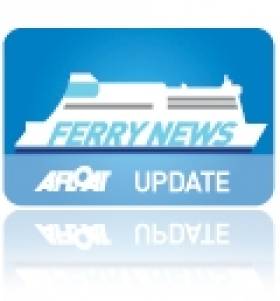Displaying items by tag: Strike
Dockers Strike in Liverpool Set to Threaten Deliveries to Ireland
Halloween decorations, DIY materials and heavy machinery deliveries bound for Ireland could face delays as a two-week dockers’ strike at the port of Liverpool gets underway.
At least 560 workers were due to walk out of the port last night in a dispute over pay, according to the Unite trade union, just hours after Queen Elizabeth’s funeral and the end of a 10-day national mourning period.
The strike will affect the Port of Liverpool’s container division until October 3, although other operations – cruises, trailer traffic and bulk cargo – will be unaffected, the port said in a statement.
Although Liverpool does not handle time-sensitive food or other perishable goods bound for Ireland, it is a hub for goods coming in via container ship from Asia and the United States including goods destined for Irish retailers.
“Any disruption in England has a knock-on impact for Ireland,” said Aidan Flynn, chief executive of the Freight Transport Association of Ireland. “It’s like a concertina effect. Things get squeezed.”
Independent.ie has more here on the strike on Merseyside.
Disruption Continues on Brittany Ferries Services
#FERRY NEWS - Industrial action by French crews with Brittany Ferries is still disrupting the company's ferry services from Cork to Roscoff.
As previously reported on Afloat.ie, a series of wildcat strikes by staff protesting against changes to their working terms and conditions began last Friday 21 September.
The action led to the cancellation of sailings on the weekend-only round-trip Cork route until further notice.
Passengers intending to travel from Cork have been advised to seek passage instead on Celtic Ferries' Rosslare-to-Cherbourg route or Irish Ferries' Rosslare services to Cherbourg.
























































